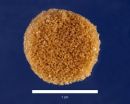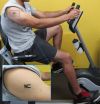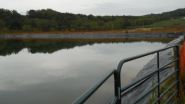(Press-News.org) What insights do the models, experiments and econometric regressions of scientific research provide about the economy – and why and under what conditions are they useful in dealing with real-world problems? This question will be overarching the discussions among 17 Nobel Laureates in Economic Sciences and approximately 450 aspiring young economists from more than 80 countries in Lindau, Germany, next week. The 5th Lindau Meeting on Economic Sciences will bring them together for a unique dialogue across generations, cultures and scientific backgrounds. The meeting will open on 20 August with a keynote address by the German Chancellor Angela Merkel, and will also feature "a panoramic view on the situation and prospects in Latin America" by Mario Vargas Llosa, the 2010 Nobel Laureate in Literature.
From 20 to 23 August, the participating laureates and the young economists will have plenty of opportunity for an intensive exchange of ideas. The numerous lectures, discussions, master classes and panel discussions of the programme will address central fields of the discipline, ranging from econometrics, game theory, and neo-classical growth theory to mechanism design and systemic risk measurement. The question "How useful is economics – how is economics useful?" will be debated by the three economics Nobel laureates Peter Diamond, Robert Merton and Alvin Roth on Mainau Island on Saturday, 23 August. The panel will be chaired by Torsten Persson of Stockholm University, who serves on the prize committee for the Alfred Nobel Memorial Prize in Economic Sciences. As a special guest of honour, Queen Silvia of Sweden will attend the concluding events that day.
Economics is often abstract. Economic models are formulated in general terms, without reference to any particular economy. Theorising involves assumptions that are patently unrealistic. Laboratory experiments involve artificial environments that may be quite different from real-world situations. Econometric studies often exploit specific data sets that allow the researcher to identify certain effects. The concluding panel will discuss why and under what conditions the insights gained from these models, experiments and econometric regressions can be used outside their narrow domains and how they contribute to dealing with real-world problems.
Earlier at the Lindau Meeting already, several plenary lectures by Nobel laureates will illustrate some of the ways in which economics can be useful for dealing with real-world problems.
Alvin Roth: "Matching kidney donors and recipients"
Almost every country in the world has laws against paying for kidneys. This is an example of a "repugnant market", where any benefits of matching demand and supply need to be achieved without monetary transactions. Alvin Roth, who will deliver a lecture on repugnant markets, set up the New England Program for Kidney Exchange, using an algorithm based on game theory to match donor-recipient pairs.
The exchange works like this: if, for example, a wife wants to donate a kidney to her ill husband but is not a genetic match, the system will find a couple in a similar predicament to arrange a compatible swap. Ideally the system is designed for two couples to reduce the need to coordinate surgeries across the country, but it has worked for chains of up to six couples.
Peter Diamond: "US unemployment"
The US economy is experiencing a higher level of unemployment than before the crisis for the same level of the vacancy rate. This shift in the Beveridge curve – the relationship between the unemployment and vacancy rates – suggests a deterioration in the matching/hiring process in the economy. It is tempting to interpret this decline as a structural change in the way that the labour market works.
This interpretation has an obvious policy implication: however useful aggregate stabilisation policies are while unemployment is very high, they are likely to fail in lowering the unemployment rate all the way to the levels that prevailed before the recession since the labour market is now structurally less efficient in creating successful matches. Peter Diamond's lecture will review theory, evidence and policy debates on the US labour market.
Robert Merton: "Systemic risk measurement and management"
Systemic risk is an enormous issue for both governments and large asset pools. The increasing globalisation of the financial system, while surely a positive for economic development and growth, does increase the potential impact of systemic risk propagation across borders, making its control and repairing the damage caused a more complex and longer process.
In his lecture, Robert Merton will develop a model of systemic risk propagation among financial institutions and sovereigns. This model can be refreshed almost continuously with "forward-looking" data at low cost and therefore, may be more effective in identifying dynamic changes in connectedness more rapidly than the traditional models.
While this research is still in progress, the basic approach and the empirical findings are encouraging and it would seem that at a minimum, this approach will provide "good" questions, if not always their answers, so that overseers and policy-makers know better where to look and devote resources to discovery among the myriad of places within the global financial system.
INFORMATION:
The Lindau Meetings
From their beginning in 1951 as a European initiative of post-war reconciliation, the Lindau Nobel Laureate Meetings have evolved into a unique forum for unconstrained scientific exchange among physiologists, physicists, and chemists. The Lindau Meetings are designed to educate, inspire, and connect. Every year esteemed Nobel laureates and aspiring young scientists from all over the world come together at Lindau to engage in an open dialogue across generations and cultures. Regular meetings on economic sciences were enacted in 2004. Here some of the world's most dedicated young economists have the opportunity to pose the questions and discuss the issues they are most concerned about or interested in.
How useful is economics -- how is economics useful?
Nobel laureates and aspiring young economists from all over the world to discuss the practical value of the discipline in Lindau next week
2014-08-13
ELSE PRESS RELEASES FROM THIS DATE:
Many older emergency department patients are malnourished
2014-08-13
More than half of emergency department patients age 65 and older who were seen at UNC Hospitals during an 8-week period were either malnourished or at risk for malnutrition.
In addition, more than half of the malnourished patients had not previously been diagnosed, according to a new study by researchers at the University of North Carolina at Chapel Hill. The study was published online August 13 by the journal Annals of Emergency Medicine.
"Malnutrition is known to be a common problem among older adults. What is surprising in our study is that most of the malnourished ...
Reduction of tau protein improves symptoms in model of severe childhood epilepsy
2014-08-13
Researchers at the Gladstone Institutes have shown that reducing brain levels of the protein tau effectively blocks the development of disease in a mouse model of Dravet syndrome, a severe intractable form of childhood epilepsy. This therapeutic strategy not only suppressed seizure activity and premature death, but also improved cognitive and behavioral abnormalities that can accompany this syndrome.
Previous studies from this group have shown that lowering tau levels reduces abnormal brain activity in models of Alzheimer's disease, but this is the first demonstration ...
'Shape-shifting' material could help reconstruct faces
2014-08-13
SAN FRANCISCO, Aug. 13, 2014 — Injuries, birth defects (such as cleft palates) or surgery to remove a tumor can create gaps in bone that are too large to heal naturally. And when they occur in the head, face or jaw, these bone defects can dramatically alter a person's appearance. Researchers will report today that they have developed a "self-fitting" material that expands with warm salt water to precisely fill bone defects, and also acts as a scaffold for new bone growth.
The team will describe their approach in one of nearly 12,000 presentations at the 248th National ...
Dust -- and the microbes hitching rides on it -- influences rain, climate
2014-08-13
SAN FRANCISCO, Aug. 13, 2014 — Dusty air blowing across the Pacific from Asia and Africa plays a critical role in precipitation patterns throughout the drought-stricken western U.S. Today, a scientist will present new research suggesting that the exact chemical make-up of that dust, including microbes found in it, is the key to how much rain and snow falls from clouds throughout the region. This information could help better predict rain events, as well as explain how air pollution from a variety of sources influences regional climate in general.
She will present a talk ...
Rooting out skin creams that contain toxic mercury
2014-08-13
SAN FRANCISCO, Aug. 13, 2014 — As countries try to rid themselves of toxic mercury pollution, some people are slathering and even injecting creams containing the metal onto or under their skin to lighten it, putting themselves and others at risk for serious health problems. To find those most at risk, scientists are reporting today that they can now identify these creams and intervene much faster than before. They're speaking at the 248th National Meeting & Exposition of the American Chemical Society (ACS).
The meeting, organized by the world's largest scientific society, ...
Tattoo biobatteries produce power from sweat (video)
2014-08-13
SAN FRANCISCO, Aug. 13, 2014 — In the future, working up a sweat by exercising may not only be good for your health, but it could also power your small electronic devices. Researchers will report today that they have designed a sensor in the form of a temporary tattoo that can both monitor a person's progress during exercise and produce power from their perspiration.
The team described the approach in one of nearly 12,000 presentations at the 248th National Meeting & Exposition of the American Chemical Society (ACS), the world's largest scientific society, taking place ...
A new look at what's in 'fracking' fluids raises red flags
2014-08-13
SAN FRANCISCO, Aug. 13, 2014 — As the oil and gas drilling technique called hydraulic fracturing (or "fracking") proliferates, a new study on the contents of the fluids involved in the process raises concerns about several ingredients. The scientists presenting the work today at the 248th National Meeting & Exposition of the American Chemical Society (ACS) say that out of nearly 200 commonly used compounds, there's very little known about the potential health risks of about one-third, and eight are toxic to mammals.
The meeting features nearly 12,000 presentations on ...
Passengers who survived terrifying Air Transat flight in 2001 help psychologists uncover new clues about post-traumatic stress vulnerability
2014-08-13
Toronto, Canada – An extraordinary opportunity to study memory and post-traumatic stress disorder (PTSD) in a group of Air Transat passengers who experienced 30 minutes of unimaginable terror over the Atlantic Ocean in 2001 has resulted in the discovery of a potential risk factor that may help predict who is most vulnerable to PTSD.
The study, led by researchers at Baycrest Health Sciences, is published online this week in the journal Clinical Psychological Science – ahead of print publication. It is the first to involve detailed interviews and psychological testing in ...
Why seniors don't eat: It's complicated
2014-08-13
WASHINGTON – More than half of older adults who visit emergency departments are either malnourished or at risk for malnutrition, but not because of lack of access to health care, critical illness or dementia. Despite clear signs of malnutrition or risk of malnutrition, more than three-quarters had never previously been diagnosed with malnutrition, according to the results of a study to be published online tomorrow in Annals of Emergency Medicine ("Malnutrition Among Cognitively Intact, Non-Critically Ill Older Adults in the Emergency Department").
"We were surprised ...
Giant Amazon fish becoming extinct in many fishing communities, saved in others
2014-08-13
An international team of scientists has discovered that a large, commercially important fish from the Amazon Basin has become extinct in some local fishing communities.
The team compared mainstream bioeconomic theory — which policymakers have depended on in order to protect fish populations — with the lesser-known "fishing-down" theory, which predicts that large, high-value, easy-to-catch fish can be fished to extinction.
"Bioeconomic thinking has predicted that scarcity would drive up fishing costs, which would increase price and help save depleted species," said study ...
LAST 30 PRESS RELEASES:
Kidney cancer study finds belzutifan plus pembrolizumab post-surgery helps patients at high risk for relapse stay cancer-free longer
Alkali cation effects in electrochemical carbon dioxide reduction
Test platforms for charging wireless cars now fit on a bench
$3 million NIH grant funds national study of Medicare Advantage’s benefit expansion into social supports
Amplified Sciences achieves CAP accreditation for cutting-edge diagnostic lab
Fred Hutch announces 12 recipients of the annual Harold M. Weintraub Graduate Student Award
Native forest litter helps rebuild soil life in post-mining landscapes
Mountain soils in arid regions may emit more greenhouse gas as climate shifts, new study finds
Pairing biochar with other soil amendments could unlock stronger gains in soil health
Why do we get a skip in our step when we’re happy? Thank dopamine
UC Irvine scientists uncover cellular mechanism behind muscle repair
Platform to map living brain noninvasively takes next big step
Stress-testing the Cascadia Subduction Zone reveals variability that could impact how earthquakes spread
We may be underestimating the true carbon cost of northern wildfires
Blood test predicts which bladder cancer patients may safely skip surgery
Kennesaw State's Vijay Anand honored as National Academy of Inventors Senior Member
Recovery from whaling reveals the role of age in Humpback reproduction
Can the canny tick help prevent disease like MS and cancer?
Newcomer children show lower rates of emergency department use for non‑urgent conditions, study finds
Cognitive and neuropsychiatric function in former American football players
From trash to climate tech: rubber gloves find new life as carbon capturers materials
A step towards needed treatments for hantaviruses in new molecular map
Boys are more motivated, while girls are more compassionate?
Study identifies opposing roles for IL6 and IL6R in long-term mortality
AI accurately spots medical disorder from privacy-conscious hand images
Transient Pauli blocking for broadband ultrafast optical switching
Political polarization can spur CO2 emissions, stymie climate action
Researchers develop new strategy for improving inverted perovskite solar cells
Yes! The role of YAP and CTGF as potential therapeutic targets for preventing severe liver disease
Pancreatic cancer may begin hiding from the immune system earlier than we thought
[Press-News.org] How useful is economics -- how is economics useful?Nobel laureates and aspiring young economists from all over the world to discuss the practical value of the discipline in Lindau next week




